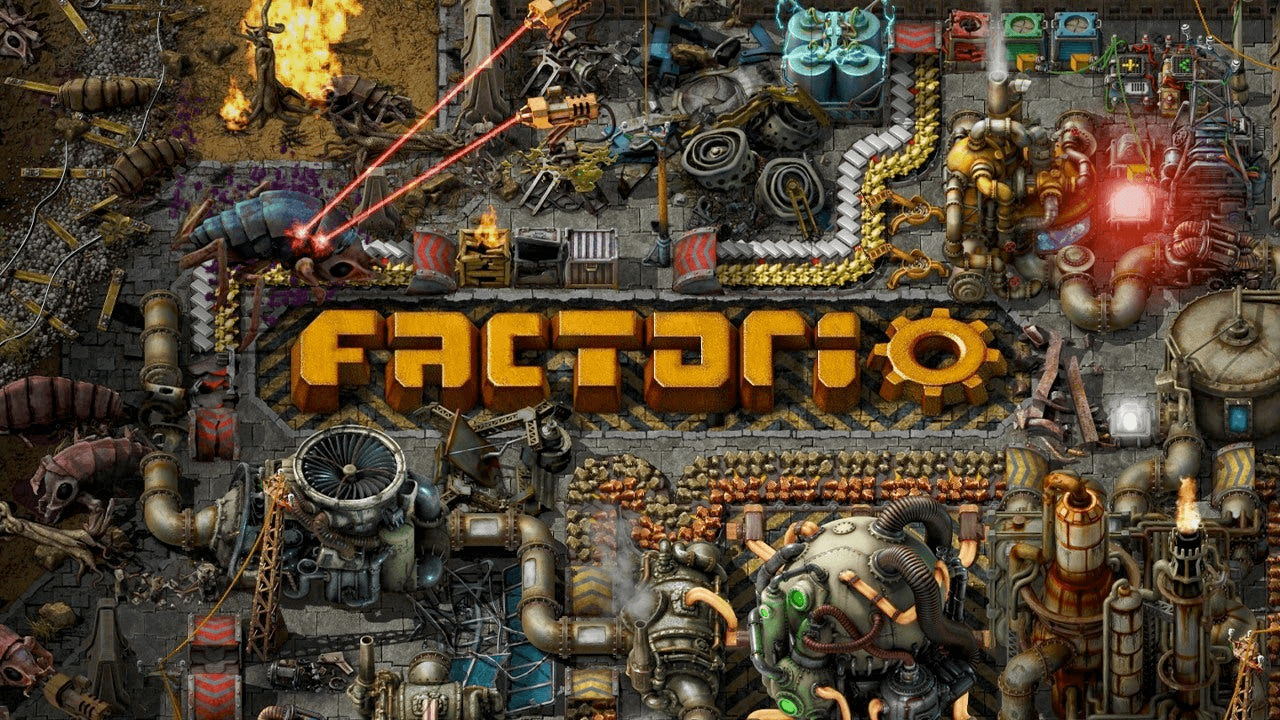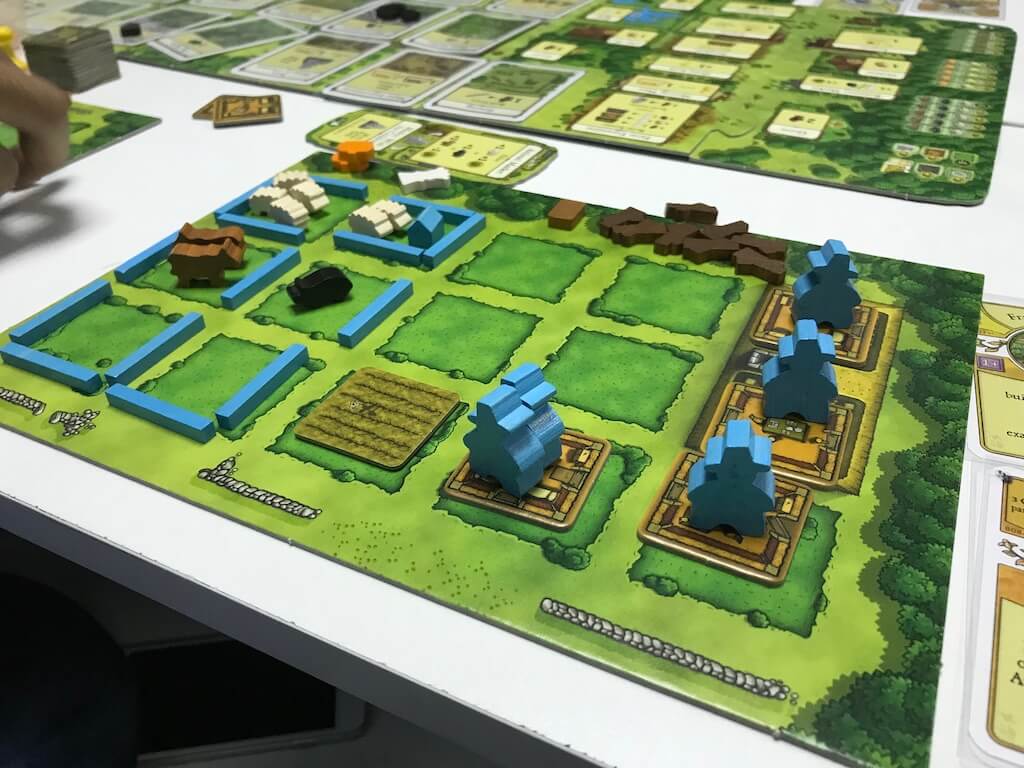By the time I had met him, my old boss already had a superpower: he could find experienced people, usually traditional Chinese businessmen, and turn them into his mentors. He told me that when he first landed in Ho Chi Minh City in 2009, he talked his way into the Singapore business association there, and walked away with a directory of their members. Then he called the most interesting ones and took them out to dinner. I knew this to be true because I found the old directory in a stack of books in our office; he grinned when I asked him how he got it.
Sometimes he let me tag along. The meeting that stuck with me the most was one of the first ones. Back then, before we pivoted to making point of sales systems, we were trying to get a mobile games business off the ground. My boss knew a Singaporean entrepreneur who bought games from China, repackaged them for the Vietnamese market, and monetised through in-game purchases. We met up at a bar. Did this entrepreneur know anything about gaming? Of course not! He was in his early 40s, he had moved to Saigon 10 years earlier, and he knew how to make money, never you mind if it was with games or furniture or rice trading or cats. In Vietnam, circa 2014, with credit card penetration in the low single-digit percentages, he couldn’t rely on online purchases for the mobile games business; his company sold credit packs in Circle-Ks and FamilyMarts. I wanted to know how he did this.
“You just make a deal with them, not so hard one lah,” he said, sipping his Tiger. He then proceeded to give us a one-sided running commentary on the relative attractiveness of the waitresses around us, in Singaporean Hokkien, so that only we could understand him.
My boss asked better questions. He asked for the story of the business. More importantly, he asked how this entrepreneur thought about building it.
“Not so hard one lah,” he said, “You have to buy the game, and then you hire some developers, and then their job is to translate it to Vietnamese, you know? When you hire the guys, you get them to give you an SOP (standard operating procedure). I run everything using SOP. You ask the managers to give you their SOP, and then you evaluate them with it. You can put it in a book and then take it out during evaluation. Then it becomes easy.”
We asked a couple more questions about the how he fell into the business. I can’t remember most of what he said now, but the bit that I do remember was a few exchanges in, when he suddenly waved our questioning away. We were asking something about whether he did this first, then that, about the ordering of things. And he said “No, no no, you don’t do that. You need to understand. You don’t do one thing first, and then the next thing. Business is not like that one lah. You must do everything at the same time. You need to play the octopus game. You know the octopus game? You know how octopus got many arms, right? So each arm is doing one thing, but they all do at the same time. Like I am negotiating with the Chinese company (for the game), but before I finish negotiating I start looking for developers. And before I finish hiring them I go find someone who can manufacture the scratch cards and I am talking to them to make the cards. And before I finish the cards I go to Circle-K and Family Mart and tell them I have this game, I want to sell credits with them. You don’t say ‘oh, when I get the game from the China studio, then I start looking for developers, then I hire them then I find the card maker’, nono, you say to the developers ‘I already have this China game, I want you to modify it for Vietnam’, and so on, act as if each part is already done.”
“And what if you fail with one of the arms?” I asked, “Like what if you say ‘I have this game’, but you don’t manage to get it?”
“Yah, so that’s where you have to be smart lah. You should only start on the next arm when the previous arm is like 70%, 80% done, and you are quite confident you can close it. But of course not perfect one lah. Sometimes it doesn’t close. But this is business, right?”
I was new to Saigon at the time. After our conversation wrapped up he gave me a handful of restaurant and bar recommendations, and then hopped onto his motorbike and vanished into the night traffic. A few months later I learnt from my boss that he had sold the games business and got into furniture. I met with him once more, about a year afterwards, because he wanted to sell us some office tables and chairs, but we weren’t moving offices at the time. I never met with him again.
But his description of the ‘octopus game’ stuck with me in the years since. Not in a conversational way — I think I used the phrase ‘the octopus game’ only once or twice with my boss in the period afterwards (as in “we have to octopus game this”, or “I’m octopus gaming this” — usually right before a high stress period, because cutting a new deal or launching a new product just fundamentally calls for keeping multiple balls in the air.) But I think the analogy remains so vivid because as he was speaking I visualised an octopus spinning plates on each of its eight arms, one tentacle working a plate before moving to the next, propped up in the bar seats next to us. How could you forget an image like that?
Games That Feel Like Business
This Chinese businessman was right in one other way: describing business as an ‘octopus game’ was a remarkably good way of capturing the experience. I last alluded to this in Prioritise the Highest Order Bit, where I wrote:
If you’ve never worked at a startup, and you wonder what it means when people say ‘every startup is a shit-show on the inside’, well — this is what it means. The advice to ‘focus on the highest order bit’ is easy to say, but the natural implication of putting it to practice, especially in a resource-constrained environment, is that you often have to let other things blow up. And Dinesh’s company management doc is the best articulation I’ve seen of this simple truth.
The broader implication of ‘prioritise the highest order bit’, though, is that most of early business feels like this: it feels like you have multiple arms, and some of them are doing well and some of them are not, and you’re fixing one or two while you let the rest blow up. And it’s like this all the time, and how you get good at running a business is that you become comfortable with letting plates shatter, sometimes tragically, safe in the knowledge that everything will get better over the longer term if you’re focused on the right things in the here and now.
The interesting question becomes, though: what games best capture this experience? For those who are interested in business, but can’t yet run one, what gives you the closest experience?

I think one answer is Factorio. Today, it's fairly well known that Shopify lets its employees expense Factorio — and that it is the only computer game that they’re happy to pay for. CEO Tobi Lutke is known to say, publicly, that “… it’s just bound to be good for Shopify if people play Factorio for a little while. Because part of Shopify is building warehouses and fulfilling products for our customers. We are building global supply chains, which is six networks. And Factorio is kind of something that makes a game out of that kind of thinking. And you know what? It's actually not surprising. Because that kind of thinking is super fun.”
Fun fact: The one game you can expense at Shopify. Brilliant work team. Those 8 years of dev time have really paid off. https://t.co/ql4OGsRkV7
— Tobi Lutke 🌳🌲🛒🕹 (@tobi) August 14, 2020
Factorio has quite a bit of the flavour of the ‘octopus game’. And it’s not just Factorio that has this flavour; Patrick McKenzie, for instance, has said that all factory games pushes many of the same buttons that were pushed when he was still a startup operator:
Satisfactory and similar factory games push a lot of my startup / operator buttons.
— Patrick McKenzie (@patio11) June 1, 2021
"Dang it I'm having brownouts in the factory. Time to throw down four coal power plants."
"Now I'm constrained on coal! Well, I'll just divert some from the foundry."
"Foundry offline?!"
My version of this is to say that business is a systems game, and the best education I’ve found for business is a Euro board game:
Business is a systems game, and the best education for business is ... a Euro board game.
— Cedric Chin (@ejames_c) January 20, 2021
I mean, think about it: apart from negotiations or sales meetings, most of business is turn-based. The natural length of a turn in a real-world business is a day.
This is true in more ways than one. Eurogames are often competitive — albeit indirectly so; most of the time you’re competing for a central pool of resources against other players — much like with business. In business, you don’t defeat your competition like, say, an army would; you don’t go to their offices and kill them. No, in business you defeat your competition by denying them access to resources. And unlike the real-time execution of Factorio and its ilk, real world business execution usually lets you stop to think about the business — on nights, weekends and public holidays (if you’re lucky enough to have them). Hence my comment about ‘the natural length of a turn in a real-world business is a day’.
Of all the Eurogames I’ve played, I've found the farming survival game Agricola to be most like building a company. In Agricola, you control a farmer and his wife, and you have to ensure that you end up with a good farm by the end of the game. This means executing well on a large number of dimensions: you want a large, upgraded farmhouse, a big family, a sufficient number of sheep, pigs, cows, vegetables and grain in your holdings, and you want to minimise the wasted space on your land by tilling enough field tiles, or fencing them in to become pastures for your livestock. Oh, and you have to make sure your family doesn’t starve while doing so (which in turn eats into your reserves of vegetables, grains and animals).

What makes this doubly hard is that you’re competing with every other player for a central pool of resources and actions. Being denied access to a particular resource or action prevents you from completing the necessary improvements in time, which then blocks the development of other elements of your farm. For example, feeding your family with livestock is a very efficient way of generating food, but this strategy requires a cooking hearth, which in turn requires clay and a build action, and of course an assortment of animals (sheep/pigs/cows). Collecting livestock requires fencing in portions of your farm to hold them, which in turn requires wood, which in turn requires taking turns to collect the wood, which prevents you from developing other parts of your farm you’ll be scored on like tilling land and sowing grain/vegetables.
This is very much like business. Building a company requires you to execute well on a sizeable number of dimensions, roughly all at the same time. You need to hire sufficiently well, figure out product development, watch costs and cash flow, maintain inventory, build out various parts of the company (support, product, engineering, sales), figure out sales strategy, execute sufficiently well on marketing, build up a healthy sales pipeline, and pay attention to company culture, employee morale and employee growth, so that you can minimise employee turnover and increase the effectiveness of whatever high level strategy you’re banking on.
And you have to do all of this with limited money and limited time.
In the early days, this feels very much like everything being broken all the time, and you’re frantically rushing around putting out fires. (In Agricola, it usually means you have to get food from the fishing pond – something that isn’t scalable, doesn’t contribute to your farm or your score, but prevents your family from starving). Both Agricola and company building forces you to learn to prioritise: you don’t have a great farmhouse right now, but you can fix that later; first you must build a food engine to feed your family. You might have a schism between two generations of employees right now (thanks to aggressive hiring you needed for the growth of the business), leading you to bleed key employees, but you need to close a deal with a major customer or your entire company is toast; you set aside the problem of a toxic culture and close the sales deal, hoping that by the time you’re done you’ll have enough of a team to deliver to the customer.
Agricola has nine different point classes: your farmhouse, your family size, your store of grain and vegetables, your store of livestock (sheep, pigs, and cows), and the number of fields and stables on your land. It is a large set of variables, and you are expected to perform decently at all of them to have a shot at winning in the game. Similarly, business has multiple ‘point classes’. You can get away with ignoring some of them, but if you want to run a good business, you’ll have to do decently well across most of the variables. I quite like Permanent Equity’s checklist for businesses. They argue:
We put what we call “the business of business” in five buckets, listed here in order of importance to become a fully functioning enterprise:
- Operations
- Finance
- People
- Marketing
- Tech
We say that these are listed in order of importance, but that is not to denigrate the financials, people, marketing or tech. Rather it’s to acknowledge that a business can run without those functions being finely tuned. It will run poorly, of course, but we’ve seen it done. A business with sound operations and finance is in a slightly better spot and on and on down the line. A great business will do all five of these things well, but we have never seen a small business that is also a great business. If they were stellar in each area, they’d grow tremendously.
In practice these five buckets are more like 15 buckets, since each of those buckets may be decomposed into multiple smaller buckets. For instance, ‘Finance’ decomposes into ‘Are you working to reduce your taxes? (tax management)’ and ‘Do you manage your cash conversion cycle? (cash flow)’ and ‘Is your capital structure optimal? (capitalisation)’, each of which are drastically different skillsets. The whole list is great, and I recommend scrolling down to read the most common responses that small businesses give when asked the checklist.
(The list may also be read as an inventory of skills that every good business operator must know; if you’re currently running a business or you want to run a business, it’s probably a good idea to save this somewhere to use as a syllabus).
My old company used to have board game nights every Wednesday. I would often joke that I was done with business for the day, only to play another business over the course of three hours at night. And playing Agricola was very much like running a company in the visceral sense: sporadically thrilling, often exhausting, but always fun. You start at 7pm and then get lost in the octopus game; the next time you look up from the board, you discover that it is 10:30pm and the office building is quiet around you. And this is where Agricola most differs from running a real world business: you get to put down the spinning plates you have in your head, say goodnight to your competitors, and go home.
Originally published , last updated .
This article is part of the Operations topic cluster, which belongs to the Business Expertise Triad. Read more from this topic here→





